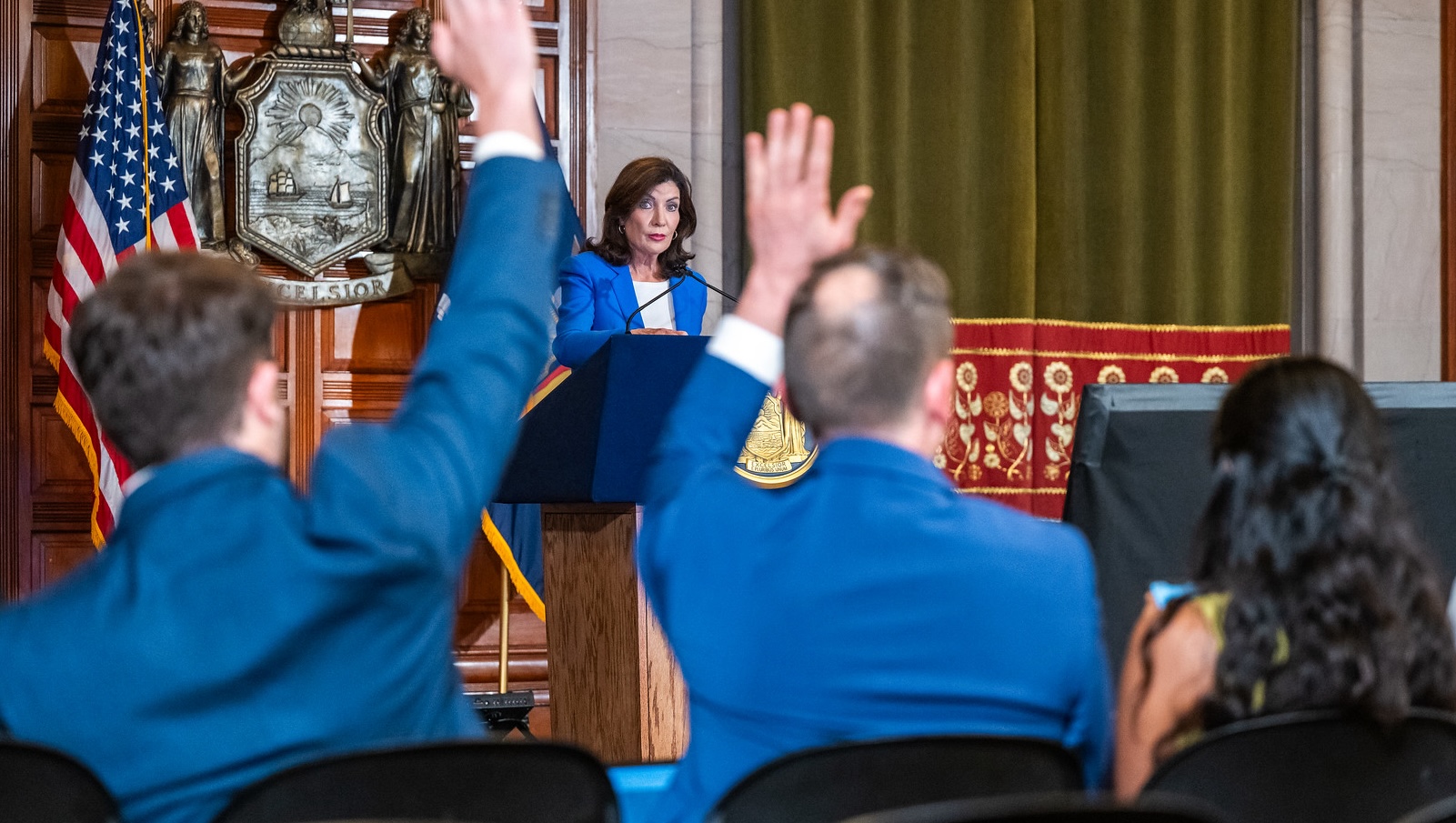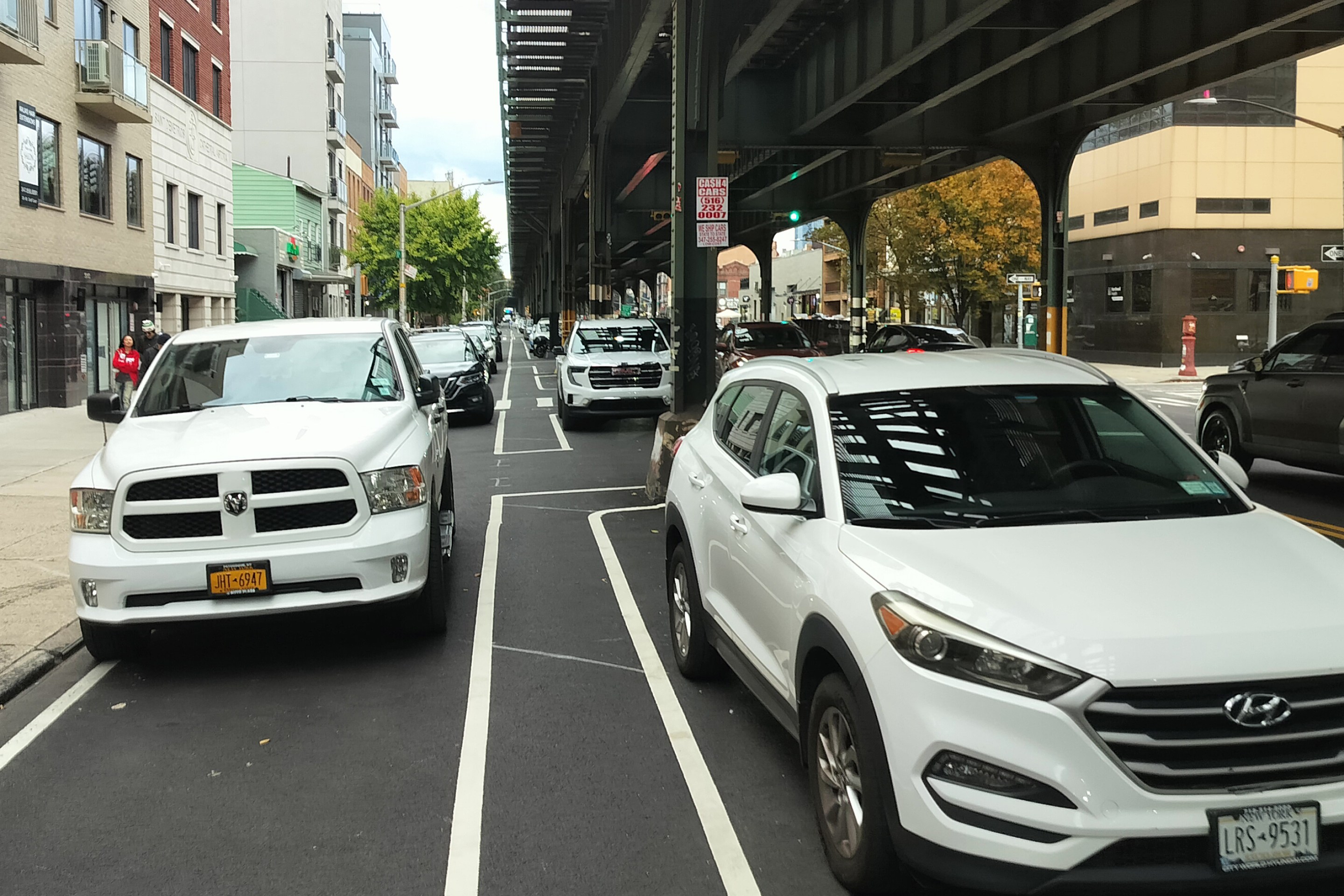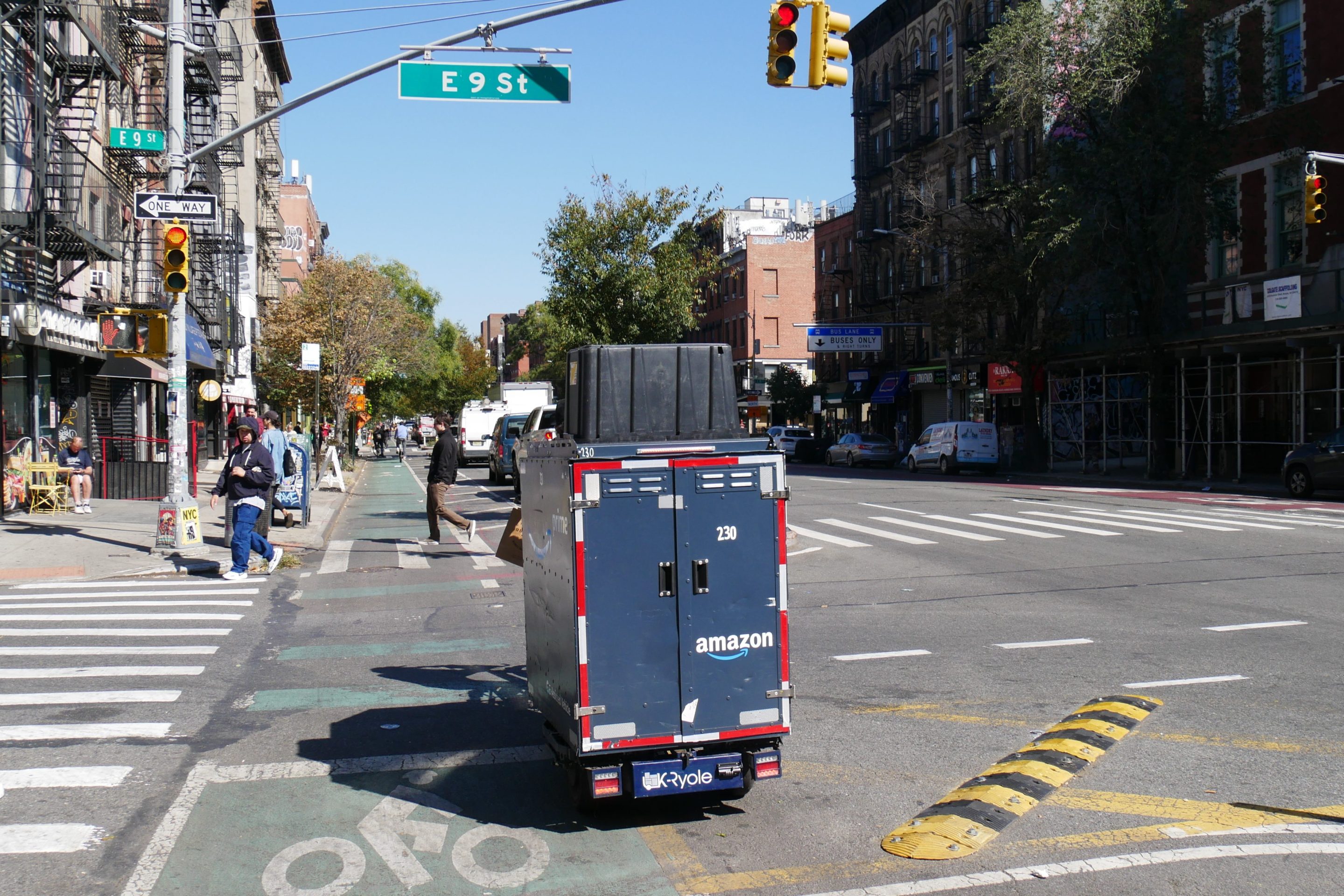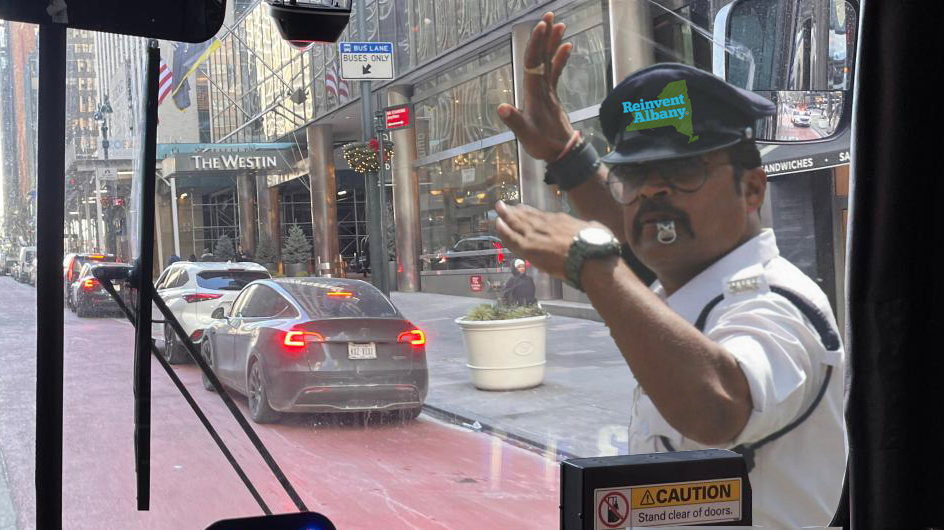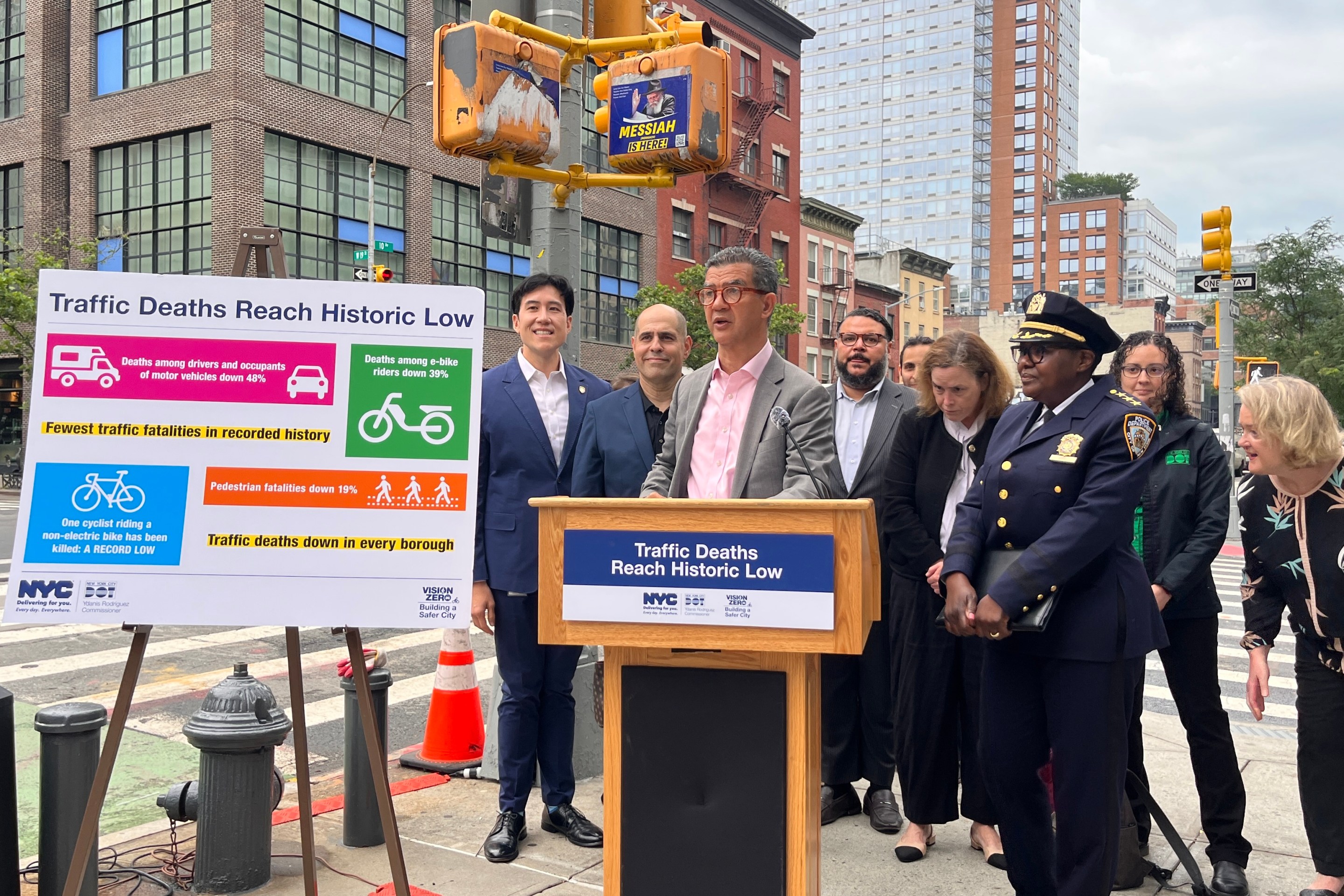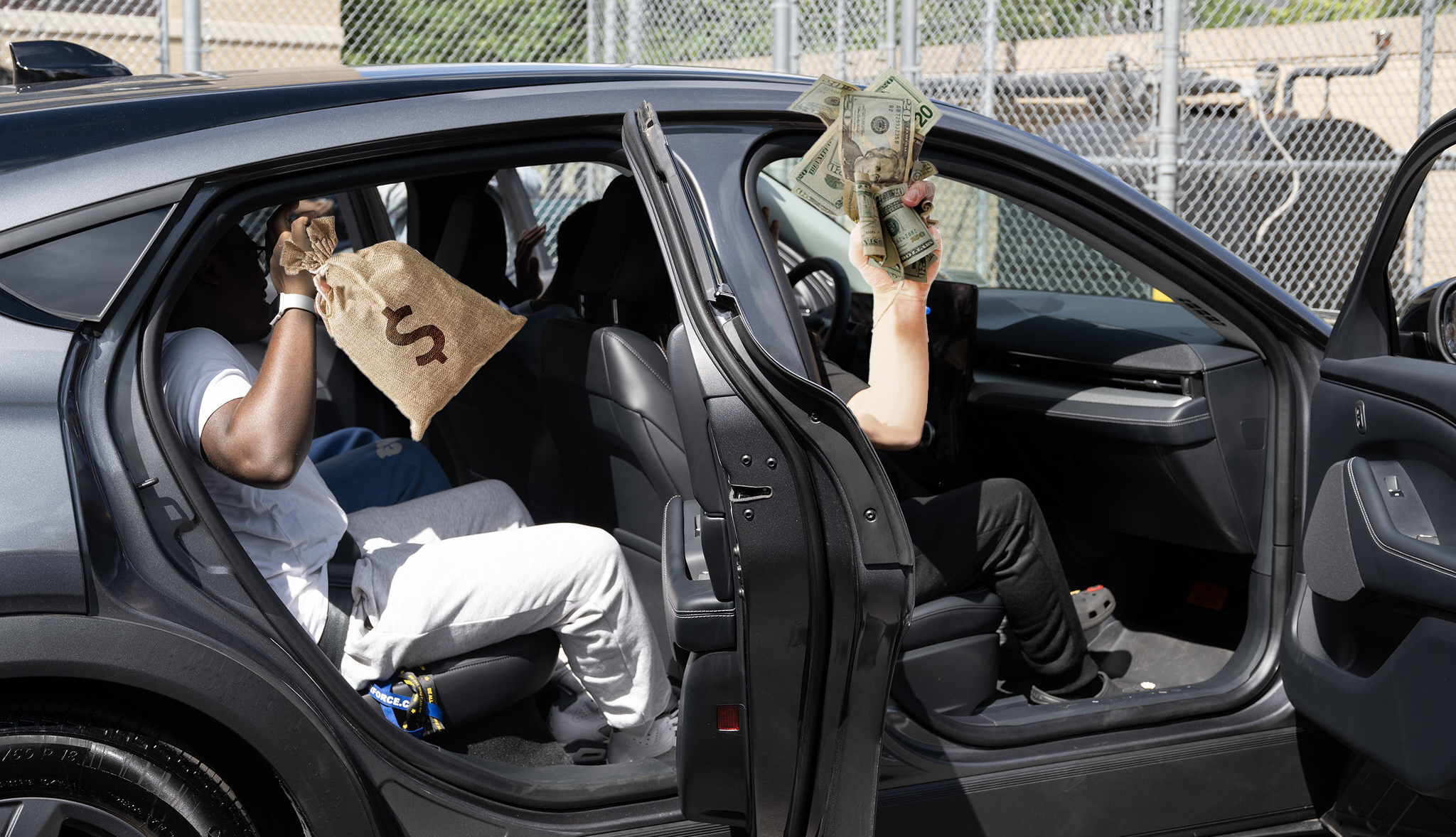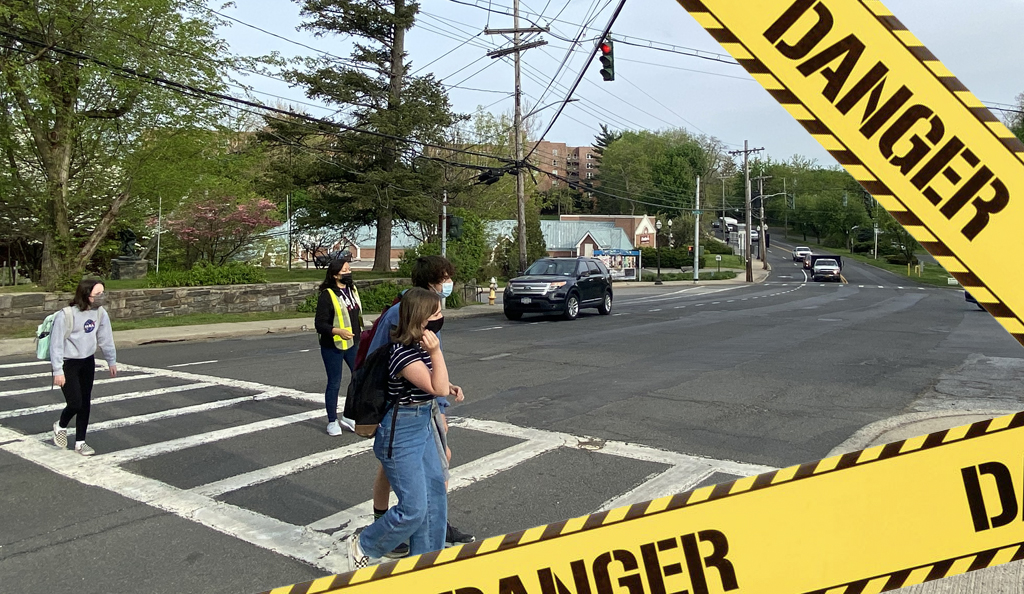Gov. Hochul on Tuesday started closing the $15-billion hole her suspension of congestion pricing blew in the MTA's capital budget — but she's still billions short, to say nothing of the economic and climate benefits of the central business tolls.
The gridlock governor announced $54 million in state funding to allow the MTA to continue preliminary work on the Second Avenue Subway expansion into Harlem — reducing the MTA's capital funding gap by 0.36 percent to $14,946,000,000.
Hochul told reporters at the State Capitol in Albany that she stands "firm" in her "commitment" to fund the MTA — yet made no mention of congestion pricing or the need to cut car traffic, pollution and road violence in New York City, which used to be her selling points for the tolls.
"I am firm in my commitment that everything that has been envisioned [in the MTA's $15-billion capital plan] will continue," Hochul said. "We can talk about it at the end of the year. ... I've already started speaking to the [legislative] leaders about how that's going to look. So the conversations are ongoing, but they can't act on it until next year anyhow."
This absolute fraud killed billions of dollars in federal matching funds for the Second Avenue Subway. It’ll be delayed for years if it happens at all. This is an attempt by @GovKathyHochul to salvage her reputation among stupid people who haven’t been paying attention. https://t.co/Hne1lR2C5b
— Rich Mintz (@richmintz) July 30, 2024
The MTA halted the Second Avenue Subway expansion after Hochul canceled congestion pricing's June 30 launch. Hochul's move on Tuesday essentially plugged a very small hole in the $15-billion Titanic that is the MTA capital plan. The new funds allow the project to continue "as scheduled," she said, but the question remains how she will pay for the rest of the multi-billion-dollar subway extension — and the billions of dollars of other unfunded needs that are so critical to the MTA.
Congestion tolls were meant to fund $3 billion the Second Avenue project's $7.7-billion pricetag, and were a key component of meeting federal requirements to obtain $3.4 billion more from Washington. Hochul's sprinkling of funding won favorable headlines that may temporarily stem the outrage of East Harlemites, who've waited decades for the subway to reach their neighborhood, but the threat of other canceled projects still looms.
Without the $15 billion from congestion pricing, the MTA has put some $16.5 billion worth of projects on hold — including station accessibility, new trains and buses and crucial signal modernization.
Advocates saw through Hochul's thin contribution on Tuesday and called on her to simply restart congestion pricing.
“New Yorkers aren’t fools," said Danny Pearlstein of Riders Alliance. "By stalling congestion pricing, Gov. Hochul leaves trains unreliable, stations inaccessible, buses and Access-a-Ride stuck in gridlock, and millions of riders facing steep fares hikes and deep service cuts. ... The MTA is now facing lower revenue and growing borrowing, maintenance, and overtime costs.”
Hochul has yet to come up with a way to replace the congestion pricing money, and MTA officials on Monday laid out billions more dollars in maintenance needs the state needs to fund going forward. Hochul's attempts to replace the money through legislative action in June failed spectacularly; on Tuesday, she reiterated her unearned confidence that she'll be able to convince the state legislature to throw out the congestion pricing plan it passed in 2019 in favor of tax hikes or another funding scheme that has yet to be discussed.
Today should have been one month since #CongestionPricing started. But thanks to Gridlock @GovKathyHochul, we have more pollution and traffic but less money for MTA improvements.
— Streetsblog New York (@StreetsblogNYC) July 30, 2024
We needed congestion pricing on June 30, but we'll gladly take #CongestionPricingNow. pic.twitter.com/o8yDcsYqKX
Hochul insisted her team is "already talking to the MTA" about the 2025-29 capital plan — and highlighted the use of the state's $54 million in couch cushion money as evidence that she won't delay it.
"There's not money right now in this budget, but what I was able to do yesterday, for example, is make sure that the Second Avenue Subway continues. I will find the resources to make sure that nothing is stopped. I've said that all along," she said. "People didn't realize at the time that I was serious that nothing is going to be stopped."
The governor, who has never lived in New York City full-time, has made no such commitment to reduce gridlock, give more space to cyclists and pedestrians, create business-friendly streets, address traffic violence or cut pollution — all things congestion pricing would address.
New York has fallen disastrously behind on its climate goals, New York Focus recently reported. Traffic deaths, meanwhile, are up this year in the would-be Central Business District tolling zone, according to a recent study by Transportation Alternatives.
Nonetheless, Hochul hasn't uttered a word about congestion since promising she would find ways to address achieving the tolling program's other benefits without the tolls. As Streetsblog has repeatedly noted, congestion pricing was the easiest path to achieve many of those goals since it had already passed the state legislature.
All eyes now turn to the courts, where two lawsuits seeking to force Hochul to carry out state law have recently landed, and the state legislature, which passed congestion pricing five years ago and has no reason to throw Hochul a fiscal bone to let her off the hook.
